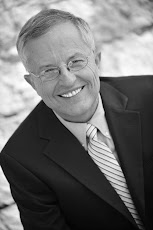So why have Southern Baptists seemed more jumpy than other religious groups have about the Pew Forum's recent poll on prevailing religious opinions?
One could argue that Baptists simply are trying to hold the pollsters accountable for their conclusions.
Or one might conclude that their public-relations folks have seen a "great news angle" and jumped in once again to get the denomination's name before the public.
I would contend that no other people—with the possible exception of the Mormons—stands to lose more than do the Southern Baptists if the recent Pew poll is correct and Americans are becoming increasingly universalistic in their approach to religion. Consequently, America's largest Protestant denomination has pounced with all fours on research by the Pew Forum that seems to affirm that a liberalizing approach to faith is under way in this country and even among their own members.
Southern Baptists represent America's leading Evangelical denomination. They represent the biggest, wealthiest, and most politically astute among the church groups that preach a you-must-be saved-to-go-to-heaven doctrine. Southern Baptists got to their bigger-than-thou status because of their approach to evangelism. Universalism undermines this basic doctrine on which the Southern Baptist populace was built.
If many correct paths exist to salvation, then no one belief is better than the others.
If many correct paths exist to God, then why bother to raise and to spend hundreds of millions of dollars annually to send more than 5,000 missionaries to every corner of the globe with the Good News of salvation available through Jesus Christ?
If many correct paths exist to salvation, then why bother to concern themselves with Jesus' words, "I am the way, the truth, and the life. No man comes to the Father except by Me" (John 14:6).
If many paths exist to God, then why bother to teach correct doctrine to their children or other church members?
The seeds of universalism have been planted in the American soil for the past four decades by the rapid rise and growth of so many non-Judeo-Christian religions here and the continuing secularization of our culture. Southern Baptists and other Evangelical groups have led the fight (somewhat unsuccessfully) against secularism; they've mostly ignored the greater threat of these alternative faiths literally sprouting like Kudzu under their noses.
Instead of trying to shout down the results of the Pew Forum's findings, Southern Baptists and other Evangelicals would be better served to use it as a wake-up call to the reality that is emerging in their own backyards.
The reality is, America's religious landscape is changing dramatically; it's spilling over into our churches—regardless whether denominational leaders are willing to face it squarely or not. Quibbling over a few percentage points or some wording in a poll only clouds the real issues. Encountering the real issue headon and deciding what strategy to follow is a much better approach.






No comments:
Post a Comment